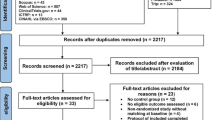Abstract
Introduction
Patients with dentofacial deformities present difficulties at work and in social adaptation. At the same time, they often appear depressed, and as a consequence, the psychosocial aspects of surgery play an important role. The aim of this study was to investigate the effects that depression causes in the quality of life of patients with dentofacial deformity.
Material and methods
Filthy patients were recruited 1 year before undergoing orthognathic surgery and correlated oral and general health with the presence and absence of depression. In order to accomplish this, these patients received an adapted questionnaires of quality of life and Beck Depression Inventory to fill out. Fisher's test was applied, with a significance level of 5 %. Intercooled Stata version 9.0 was used to analyze data.
Results
Among the eight domains of quality of life, there were three associated with depression status: vitality (p < 0.001), social aspects (p = 0.011), and mental health (p = 0.008).
Discussion
There is growing interest in the impact of dentofacial deformity conditions on patients' quality of life. The scientific literature has discussed the social aspects of these deformities and showed that untreated patients had low self-esteem and suffered social restrictions before making the orthodontic and surgical treatments. This study concluded that the depression interferes significantly in vitality, social aspects of the individual, and mental health and, at the same time, emphasizes that the orthognathic surgery aims to not only restore esthetics and function to the patient but also improve the quality of life.
Similar content being viewed by others
References
Lee S, McGrath C, Samman N (2008) Impact of orthognathic surgery on quality of life. J Oral Maxillofac Surg 66:1194–1199
Motegi E, Hatch JP, Rugh JD et al (2003) Health-related quality of life and psychosocial function 5 years after orthognathic surgery. Am J Orthod Dentofacial Orthop 124:138–143
Nicodemo D, Pereira MD, Ferreira LM (2008) Effect of orthognathic surgery for class III correction on quality of life as measured by SF-36. Int J Oral Maxillofac Surg 37:131–134
Phillips C, Blakey G, Jaskolka M (2008) Recovery after orthognathic surgery: short-term health-related quality of life outcomes. J Oral Maxillofac Surg 66:2110–2115
Beck AT, Ward CH, Mendelson M et al (1961) An inventory for measuring depression. Arch Gen Psychiatry 4:561–571
Gompertz P, Harwood R, Ebrahim S et al (1992) Validating the SF-36. BMJ 18:160–164
Ware JE, Sherbourne CD (1992) The MOS 36 item short-form health survey (SF-36). Conceptual framework and item selection. Med Care 30:473–483
Lee S, McGrath C, Samman N (2007) Quality of life in patients with dentofacial deformity: a comparison of measurement approaches. Int J Oral Maxillofac Surg 36:488–492
Cunningham SJ, Crean SJ, Hunt NP et al (1996) Preparations, perceptions, and problems: a long-term follow-up study of orthognathic surgery. Int J Adult Orthod Orthognath Surg 11:41–47
Flanary et al (1990) Impact of orthognathic surgery on normal and abnormal personality dimensions: 2 years follow-up study of 61 patients. Am J Orthod Dentofacial Orthop 98:313–322
Shaw WC (1981) The influence of children's dentofacial appearance on their social attractiveness as judged by peers and lay adults. Am J Orthod 79:399–415
Khadka A, Liu Y, Li J et al (2011) Changes in quality of life after orthognathic surgery: a comparison based on the involvement of the occlusion. Oral Surg Oral Med Oral Pathol Oral Radiol Endod 112:719–725
Cunningham SJ, Garratt AM, Hunt NP (2002) Development of a condition-specific quality of life measure for patients with dentofacial deformity: II. Validity and responsiveness testing. Community Dent Oral Epidemiol 30:81–90
Ravindran AV, Matheson K, Griffiths J et al (2002) Stress, coping, uplifts and quality of life in subtypes of depression: a conceptual frame and emerging data. J Affect Disord 71:121–130
Berber JSS, Kupek E, Berber SC (2005) Prevalência de depressão e sua relação com a qualidade de vida em pacientes com síndrome da fibromialgia. Rev Bras Reumatol 45:47–54
Rustemeyer J, Gregersen J (2011) Quality of life in orthognathic surgery patients: post-surgical improvements in aesthetics and self-confidence. J Craniomaxillofac Surg. http://dx.doi.org/10.1016/j.jcms.2011.07.009
Kim S, Shin SW, Han I et al (2009) Clinical review of factors leading to perioperative dissatisfaction related to orthognathic surgery. J Oral Maxillofac Surg 67:2217–2221
Lovius BB, Jones RB, Pospisil OA et al (1990) The specific psychosocial effects of orthognathic surgery. J Craniomaxillofac Surg 18:339–342
Lazaridou-Terzoudi T, Kiyak HA, Moore R et al (2003) Long-term assessment of psychologic outcomes of orthognathic surgery. J Oral Maxillofac Surg 61:545–552
Garvill J, Garvill H, Kahnberg KE et al (1992) Psychological factors in orthognathic surgery. J Craniomaxillofac Surg 20:28–33
Acknowledgments
The authors acknowledge with sincere thanks the “Centro de Pesquisa e Tratamento das Deformidades Buco-Faciais (Cedeface)” of the City of Araraquara. They also record their grateful appreciation of devotion of psychologist.
Conflict of interest
None.
Author information
Authors and Affiliations
Corresponding author
Rights and permissions
About this article
Cite this article
de Ávila, É.D., de Molon, R.S., Loffredo, L.C.M. et al. Health-related quality of life and depression in patients with dentofacial deformity. Oral Maxillofac Surg 17, 187–191 (2013). https://doi.org/10.1007/s10006-012-0338-5
Received:
Accepted:
Published:
Issue Date:
DOI: https://doi.org/10.1007/s10006-012-0338-5




